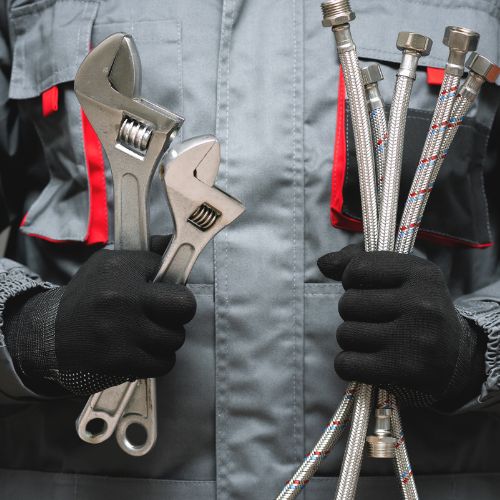How to Use Plumbers Putty
by Admin

Plumbers putty is a common plumbing tool that can be used for a variety of purposes. It's soft and malleable, which makes it easy to shape, spread, and apply.
It's also resistant to most chemicals and petroleum products, which means it'll last a long time. It can be used to seal leaks or other plumbing problems.
Clean the Surface
Plumbers putty is a sealant that prevents water from seeping through a joint or fixture. It is often used to seal taps, sinks and drains to stop leaks and prevent smelly shower drains or blocked toilets.
It is made up of a blend of clay, linseed oil and mineral spirits. It is a flexible material and usually does not harden or shrink after being applied.
Some types of plumbers putty contain limestone as well. While this can be a good thing, it also can stain porous materials like marble or granite.
If you find that a stain is present on the surface, use ice cubes to cool it down and make it easier to scrape off. You can also try saturating a cotton ball with rubbing alcohol and blotting the stain. If the stain persists, you can use liquid dish soap to remove it. You may need to repeat this process several times if the stain is very deep.
Roll the Putty
Plumbers putty is a soft, pliable sealant that can be used on faucets and sinks to stop water leaks. It's easy to use, dries quickly and is waterproof.
It's a common choice for plumbing professionals and homeowners, and it's also a staple for DIY-ers to have on hand. It provides a leak-proof seal for faucets, basket strainers and showers by filling in the space under a flange to keep water out.
When using plumbers putty, it's important to know how to roll it properly so you get a proper fit for your plumbing project. A good way to do this is by rolling it into a snake-like shape that's a consistent diameter and long enough to fit around the fixture you're installing.
Once you've rolled the putty, apply it to the surface you want to seal and press it into place. This is an essential step to prevent a leak and will make your plumbing job go faster!
Place the Putty Rope
Plumbers putty is a pliable sealing compound that creates air-tight seals against leaks in pipes and fixtures. It is commonly used to repair sinks, faucets, drains, hose lines, and other plumbing parts.
To apply the putty, you first need to roll it into a snake-like shape with a diameter that is slightly larger than the hole or space that needs to be filled. You can also roll the putty into a long rope that you can loop around the part you are trying to seal.
Start at one end of the pipe or fixture and work your way around, making a continuous loop until you reach the starting point again. You can tear off the excess ends of the putty rope if needed.
When working with plumbers putty, it is important to use heat to make the adhesive pliable. This will allow it to be more flexible when it is rolled into a rope, and it will also help to keep the putty from drying out too quickly.
Press the Putty Against the Surface
Plumbers putty is a soft and pliable compound that you apply to a surface to create a watertight seal. It's a great option for sealing plumbing fixtures, especially ones that are being installed or removed for the first time.
Using it correctly will ensure that you get the job done quickly and effectively! But before you apply the plumbers putty, make sure that your surfaces are clean and free of debris.
This can include old putty, tape, adhesives, or other materials that may have been previously used. It's also a good idea to clean any metal surfaces that you'll be working with as well.
Using the putty isn't as hard as it looks, as long as you keep your hands warm and apply a little pressure while you work. This will help the putty soften and stretch, so that it's easier to apply to your surfaces.
5265 Commerce Pkwy W, Cleveland, OH 44130
https://www.plungerplumberllc.com/
Plumbers putty is a common plumbing tool that can be used for a variety of purposes. It's soft and malleable, which makes it easy to shape, spread, and apply. It's also resistant to most chemicals and petroleum products, which means it'll last a long time. It can be used to seal leaks or other plumbing…
Recent Posts
- Debunking Common Myths and Misconceptions About Dentures
- Debunking Common Myths and Misconceptions About Dentures
- Effective Strategies for Improving Heating Efficiency in Albuquerque Homes
- The Importance of Managed IT Services for Cincinnati Businesses
- Why Professional Mold Removal is Crucial for Effective Mold Management in Queens and Staten Island
